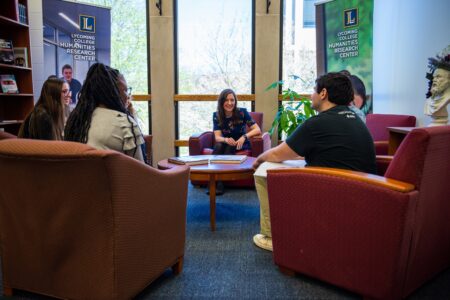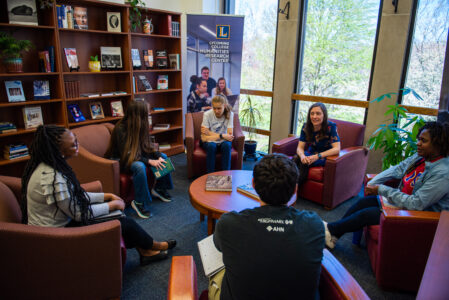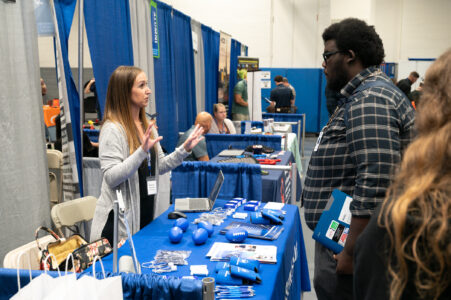New Humanities Research Center builds upon Lyco’s academic program
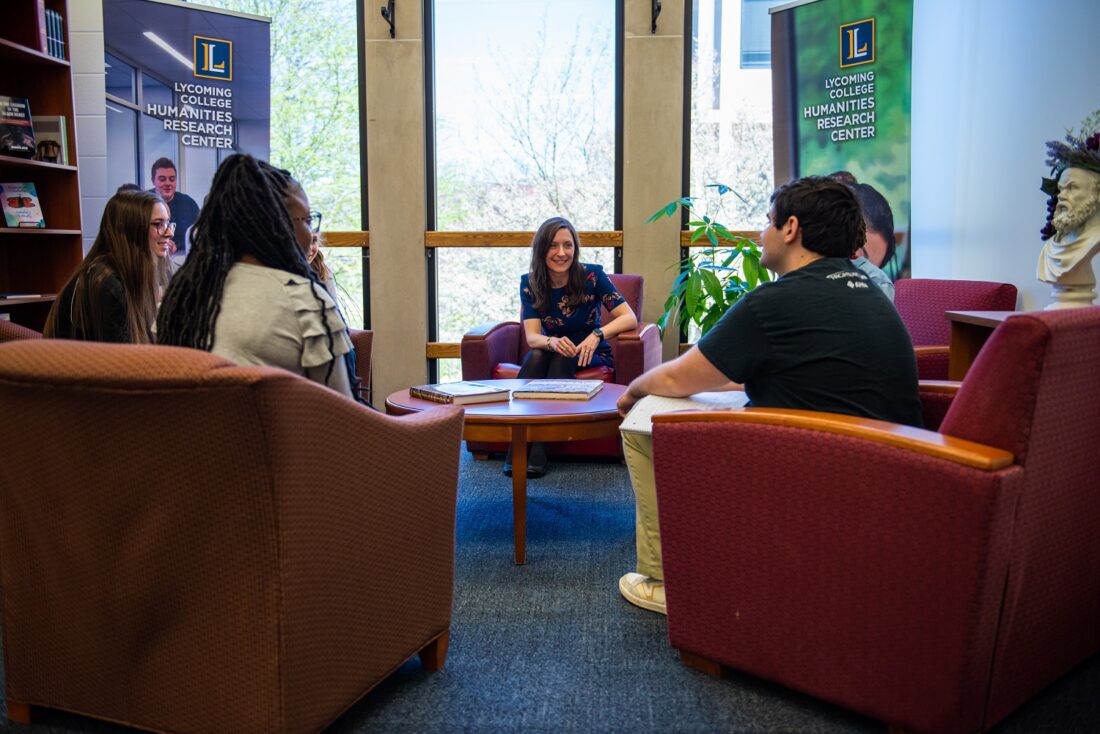
At a time when many institutes of higher education are eliminating humanities programs, Lycoming College is showing its commitment to the humanities with the launch of the Humanities Research Center (HRC), a dedicated center that supports collaborative student-faculty research, internships, guided scholarship, global study and more.
Located at the heart of the campus’ academics in the Academic Center, the HRC houses offices for the inaugural director, Andrew Leiter, Ph.D., professor of English, and Lycoming’s arts and humanities career advisor, Shanin Dougherty. The HRC offers a casual space for students and faculty to socialize and work, as well as a place to host student and faculty research presentations, professional workshops for students, reading series, guest speakers, seminars, research receptions, honors induction ceremonies, and much more.
“The HRC will benefit enrolled students by expanding experiential learning opportunities, instituting an undergraduate humanities research conference, and publishing a student-edited undergraduate research journal,” said President Kent Trachte. “This design is expected to raise awareness of Lycoming’s excellence among our peer institutions, provide a highly marketable model that attracts more top-ranked students, and engage the Williamsport, Lycoming County, and Pennsylvania communities to exchange expertise, expand educational opportunities, and promote cultural literacy.”
Combined with a liberal arts and sciences education, students studying the humanities (English, history, modern languages, philosophy, religion) and related disciplines at the College have long enjoyed impressive achievements and experiential learning opportunities in terms of collaborative student-faculty research, internships, guided scholarship, study abroad opportunities, education certification, digital humanities, graduate school placement, scholarships, and fellowships.
Plans for introducing a new interdisciplinary humanities conference focusing on undergraduate research is a top priority for the HRC, and such a conference will target the humanities programs of colleges and universities in the region. In addition to participating in research panels, Lycoming students will be involved with several aspects of the conference planning, such as initiating calls for papers, evaluating submissions, establishing panels, and organizing the events.
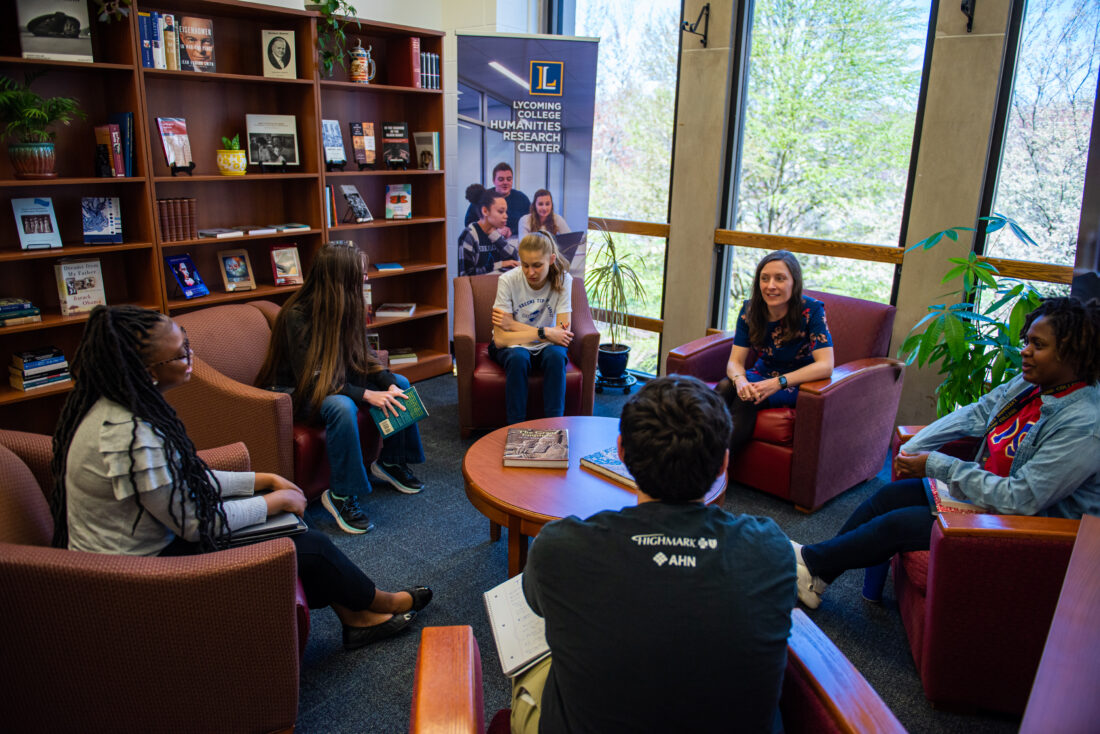
As an extension of the conference, the HRC plans to institute and publish a new journal for undergraduate humanities research. The articles for the journal will be solicited from the best research presentations of the conference.
The HRC aims to facilitate student-centered digital humanities education with clear pedagogical and professional outcomes. As part of this, it will look to establish a digital humanities lab that, in addition to traditional digitization technology, will feature recording, videocasting, podcasting, and digital publishing resources among other possibilities.
More information on the Humanities Research Center at Lycoming College is available at: https://www.lycoming.edu/humanities-research-center/.

